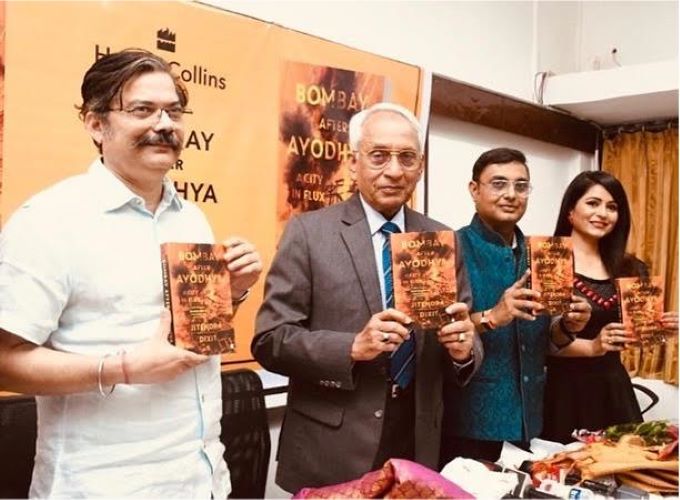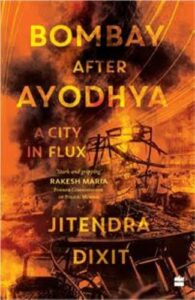Political prying makes cops go rogue, says former Mumbai police chief at book launch

Author Jitendra Dixit and former Mumbai police chief MN Dixit at the book release function
Team L&M
Dawood Ibrahim became a monster because he was given social recognition. Good people hobnobbed with him. They felt great being seen in his company. Many builders and film producers kept gangsters on their payroll. Politicians use criminals because they think they have a hold over society. They can get votes. What can the police do in this? Politicians wake up only when it comes to their necks. Now I hear politicians getting involved with gangsters and are purchasing property from them.
These scathing statements came from former Mumbai Police Commissioner MN Singh, while he was speaking at the launch of Bombay after Ayodhya, a book by journalist Jitendra Dixit. While in office, Singh had led a massive onslaught against the underworld and supervised the 1993 serial blasts’ investigation.
Published by HarperCollins, Bombay after Ayodhya, chronicles the post-Babri mosque demolition riots in Mumbai and how it affected the city’s politics, underworld, social fabric, film industry and financial markets.
Referring to the infamous Antilia case in which two encounter specialist cops were arrested for planting explosives outside Mukesh Ambani’s residence and killing a businessman, Singh said, “There has not been a more shameful incident than this in the history of the Mumbai Police. The motto of the Mumbai Police is to protect the good and finish the bad, but in this case, the cops acted in contradiction. I can only apologise on behalf of the Mumbai police. Such things happen when politicians get involved. The police must be taken out of political control to reform it.”
Senior journalist Rajiv Khandekar, who was another speaker at the event, said Dixit’s book reveals many interesting facts about various events in Mumbai in the last three decades. “The book tells us the real circumstances which led Pravin Mahajan to shoot his brother,” he said.
Anish Chandy, founder of Labyrinth Literary Agency who represents Dixit’s book said that the idea of a book on the subject germinated when one night they went for a walk in the by-lanes of areas like Dongri, Nagpada and Mohammed Ali Road which had seen tremendous violence in the past few decades.


